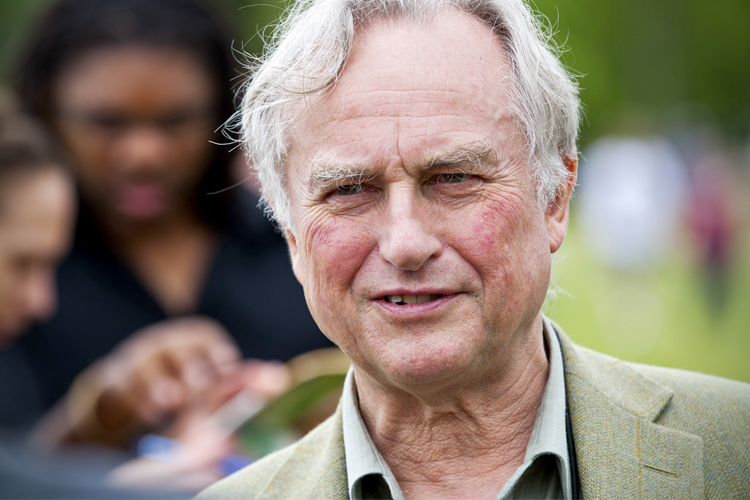 Is Richard Dawkins changing his tune on Islam and terrorism? In a recent interview with Russia Today, the evolutionary biologist and noted atheist was questioned about the Islamic religion and its ties to ISIS and just how much responsibility it bears in the brutal beheadings carried out by the terrorist group. Dawkins said:
Is Richard Dawkins changing his tune on Islam and terrorism? In a recent interview with Russia Today, the evolutionary biologist and noted atheist was questioned about the Islamic religion and its ties to ISIS and just how much responsibility it bears in the brutal beheadings carried out by the terrorist group. Dawkins said:
“Religion itself is not responsible for this… It’s also this feeling of political involvement. It’s a feeling that it’s ‘us against them.’ And I think that quite a large number of young Muslims feel kind of beleaguered against the rest of the world. And so religion in some sense might be just an excuse, but I do think that a dominant part of the motivation for these young men has to be religion.”
Dawkins’ statement is a huge divergence from the opinions of atheists like Sam Harris and Bill Maher, who continue to claim that religion is the primary motivator for radical terrorist groups like ISIS.
Harris’s anti-Islamic statements have been notable. Back in 2006, he posted a statement on his blog that bordered on xenophobia: “Unless liberals realize that there are tens of millions of people in the Muslim world who are far scarier than Dick Cheney, they will be unable to protect civilization from its genuine enemies.”
Dawkins’ remarks don’t even jibe with earlier comments he made in a piece he wrote for the Guardian back in 2001 where he contradicted the claim that terrorists are cowards:
“On the contrary, they had sufficiently effective minds braced with an insane courage, and it would pay us mightily to understand where that courage came from. It came from religion. Religion is also, of course, the underlying source of the divisiveness in the Middle East, which motivated the use of this deadly weapon in the first place.”
But now Dawkins is saying that politics plays the larger role in such radical forms of unrest and that religion is little more than a pretext for terrorism. Many on the left have been saying this for some time. In a recent piece on AlterNet, C.J. Werleman came to the same conclusion after looking into the Suicide Terrorism Database:
“…though religion can play a vital role in the recruitment and motivation of potential future suicide bombers, their real driving-force is a cocktail of motivations including politics, humiliation, revenge, retaliation and altruism. The configuration of these motivations is related to the specific circumstances of the political conflict behind the rise of suicide attacks in different countries.”
When Dawkins was asked about the motivation behind the beheadings and violence, he took a more scientific look at the biological aspect of revenge:
“There is a kind of pseudo-tribalism which uses religion as a label. And I suspect that some of these people think that this hideous violence is vengeance against, say, America, for attacking Iraq or for forming alliances with, I don’t know, with Israel, say. And this vengeance becomes directed towards innocent people. There’s one British man who is threatened with execution now who is an aid worker, whose motivation is purely altruistic towards the people there. [Since the interview, British aid worker David Haines was executed by ISIS.] And yet he’s been scapegoated as vengeance against the US and British governments. I think vengeance is a hideous emotion, but it is one that does have a biological basis.”
This is a much-needed step for new atheists like Dawkins, who have a following in the millions of people who look to him as an expert on such issues. When he had wrongfully blamed religion as the driving force for acts of terrorism, it did a disservice to those working to address the real issue behind the Middle East’s problems; it’s politics, especially bad foreign policy by the U.S. and its allies, that has always played a bigger role in extremism than religion.
Again, Werleman notes the impact of these policies:
“To maintain control of the Middle East’s cheap oil supplies, we [the U.S] have engaged in industrial slaughter. To achieve our ends, we have propped despotic regimes and brutal dictators, overthrown democratically elected governments, and waged three wars in two decades on Muslim soil. All while we fund and are complicit in Israel’s illegal occupation and theft of Palestinian land.”
Those like Harris seem to ignore this fact and would rather claim that these groups claim to carry out these actions in the name of Allah as proof that they are religiously motivated.
Not understanding this difference can have catastrophic results, especially since now the U.S and its allies are dropping bombs across Iraq and Syria and carrying out the same foreign policy strategy that typically breeds groups like ISIS. It is easy for us to believe that we are carrying out an ethical battle against a religious evil, but to believe so is an illusion and ignores all available evidence.
Atheists often want to vilify religion so badly they fail to see the contrary evidence right in front of them. But ignoring the evidence just to serve an anti-theistic agenda does the world no favors. It is time for other new atheists to join Richard Dawkins in accepting the evidence behind the origins of such terrorist movements, and work to solve the problems instead of disparaging an entire religion.


